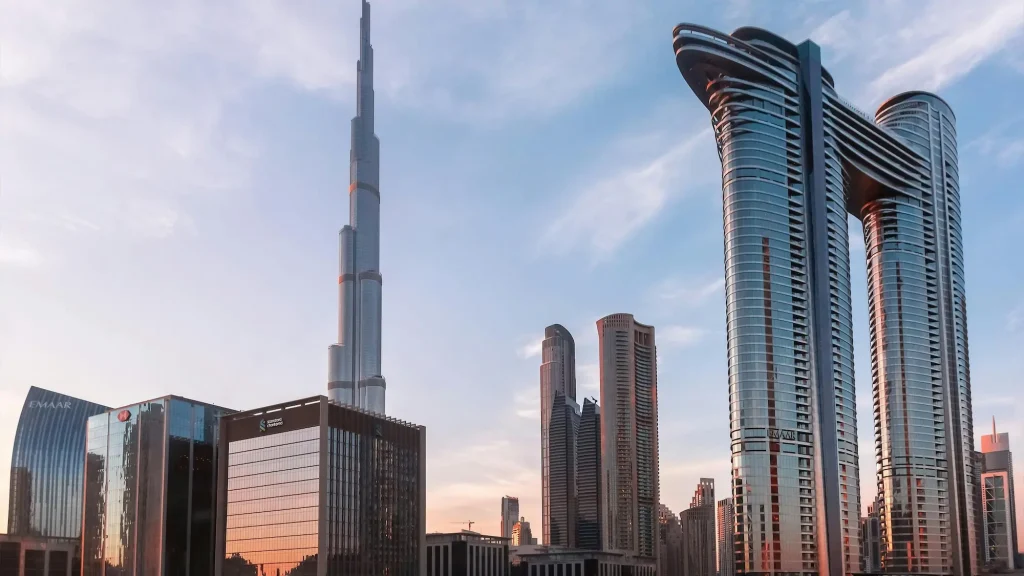Dubai’s skyline is the ultimate symbol of modern extravagance — glittering towers, waterfront vistas, and homes that redefine global luxury. For high-net-worth buyers and investors seeking luxury apartments in Dubai, two property categories stand out: luxury serviced apartments and branded residences. Both offer upscale lifestyles, yet they differ in ownership benefits, flexibility, and long-term returns.
Understanding Luxury Serviced Apartments
Luxury serviced apartments merge residential comfort with hotel-style convenience. These fully furnished properties come with premium interiors, professional housekeeping, 24/7 concierge, valet parking, and access to gyms, spas, and pools. Designed for expats, business travelers, and digital nomads, they offer the perfect “move-in ready” experience — no furnishing, no setup, no stress.
From an investment standpoint, serviced apartments are a smart choice for those prioritizing short- to medium-term rental income. Managed by global hospitality brands such as DAMAC Maison, Address Hotels, or Millennium, they ensure steady occupancy rates throughout the year. Investors can expect rental yields averaging 6% to 8% annually, particularly in popular zones like Downtown Dubai and Dubai Marina.
Serviced apartments also provide flexible ownership models — allowing owners to live in, lease short-term, or rent long-term without complicated brand contracts. However, their capital appreciation is generally moderate, and they may not carry the same prestige factor as brand-affiliated properties. Still, they remain the go-to option for investors focused on liquidity and hassle-free management.
The Essence of Branded Residences
On the other hand, branded residences are all about distinction, exclusivity, and global recognition. Developed through collaborations between elite hospitality or design brands and leading developers, these homes elevate real estate into a lifestyle statement.
Think Armani Residences within Burj Khalifa, Bulgari Residences on Jumeirah Bay Island, or Dorchester Collection Residences in Business Bay — each embodies architectural artistry and a signature design ethos. Owners enjoy concierge, valet, in-residence dining, private clubs, and curated wellness spaces. The result is not just a home, but a globally recognized brand experience.
Beyond aesthetics, branded residences excel in long-term appreciation and scarcity value. According to Knight Frank’s 2025 report, branded homes in Dubai have outperformed traditional luxury properties by 20–25% in resale value over five years. Their exclusivity, limited availability, and international appeal make them magnets for ultra-wealthy buyers worldwide.
That said, they demand a higher financial commitment. Entry prices are often 30–40% higher per sq.ft than serviced apartments, coupled with premium maintenance fees that reflect brand management standards. Branded homes are ideal for end-users and investors seeking long-term prestige rather than immediate yield.
Key Differences at a Glance
| Feature | Luxury Serviced Apartments | Branded Residences |
| Ownership Model | Freehold / Leasehold | Freehold with global brand partnership |
| Target Audience | Short-term investors, professionals, expats | High-net-worth individuals, end-users |
| Rental Yield | 6–8% annually | 5–6.5% annually |
| Capital Appreciation | Moderate | High, due to brand prestige |
| Maintenance Costs | Lower, often included | Higher, brand-controlled upkeep |
| Lifestyle Focus | Convenience and flexibility | Exclusivity and status |
Advantages of Luxury Serviced Apartments
- Hands-Free Management: Professional operators handle maintenance, marketing, and guest services, ensuring effortless ownership.
- Strong Rental Demand: Consistently high occupancy from Dubai’s booming tourism and business travel sectors.
- Affordable Entry Point: Lower per-square-foot prices make them ideal for investors entering Dubai’s luxury segment.
- Flexibility: Owners can choose between self-occupation, short-term leasing, or long-term rental contracts.
However, investors should note the limited brand influence and potential inconsistency in amenity quality depending on the operator.
Advantages of Branded Residences
- Prestige and Recognition: Global names like Bulgari, Armani, and Dorchester instantly elevate property status and resale potential.
- Architectural Distinction: Each project features unique interiors, premium finishes, and world-class design aesthetics.
- Superior Amenities: From butler service to private clubs, branded residences offer the finest lifestyle privileges.
- High Resale Value: Limited inventory and international demand fuel long-term appreciation and asset security.
The only downside lies in premium pricing, brand-related restrictions, and elevated maintenance costs. Still, for investors focused on prestige and value retention, the rewards outweigh the limitations.
Which One Should You Choose?
If your priority is rental yield, liquidity, and management ease, luxury serviced apartments make an excellent choice. They’re perfect for expats, short-term investors, and those seeking quick returns from Dubai’s thriving hospitality sector.
If, however, you aim to own a globally recognized address that reflects sophistication and long-term exclusivity, branded residences are unmatched. They suit buyers who view property ownership as both an investment and a lifestyle symbol.
Final Verdict
Both segments play vital roles in Dubai’s luxury housing ecosystem. Serviced apartments shine for investors chasing steady cash flow and low operational effort, while branded residences dominate the prestige and appreciation front.
For those unsure which aligns best with their goals, partnering with a trusted real estate agency in Dubai can make all the difference. The right experts can assess market trends, brand reputation, and ROI forecasts — helping you secure a property that combines elegance, profitability, and timeless value in one of the world’s most glamorous cities.

